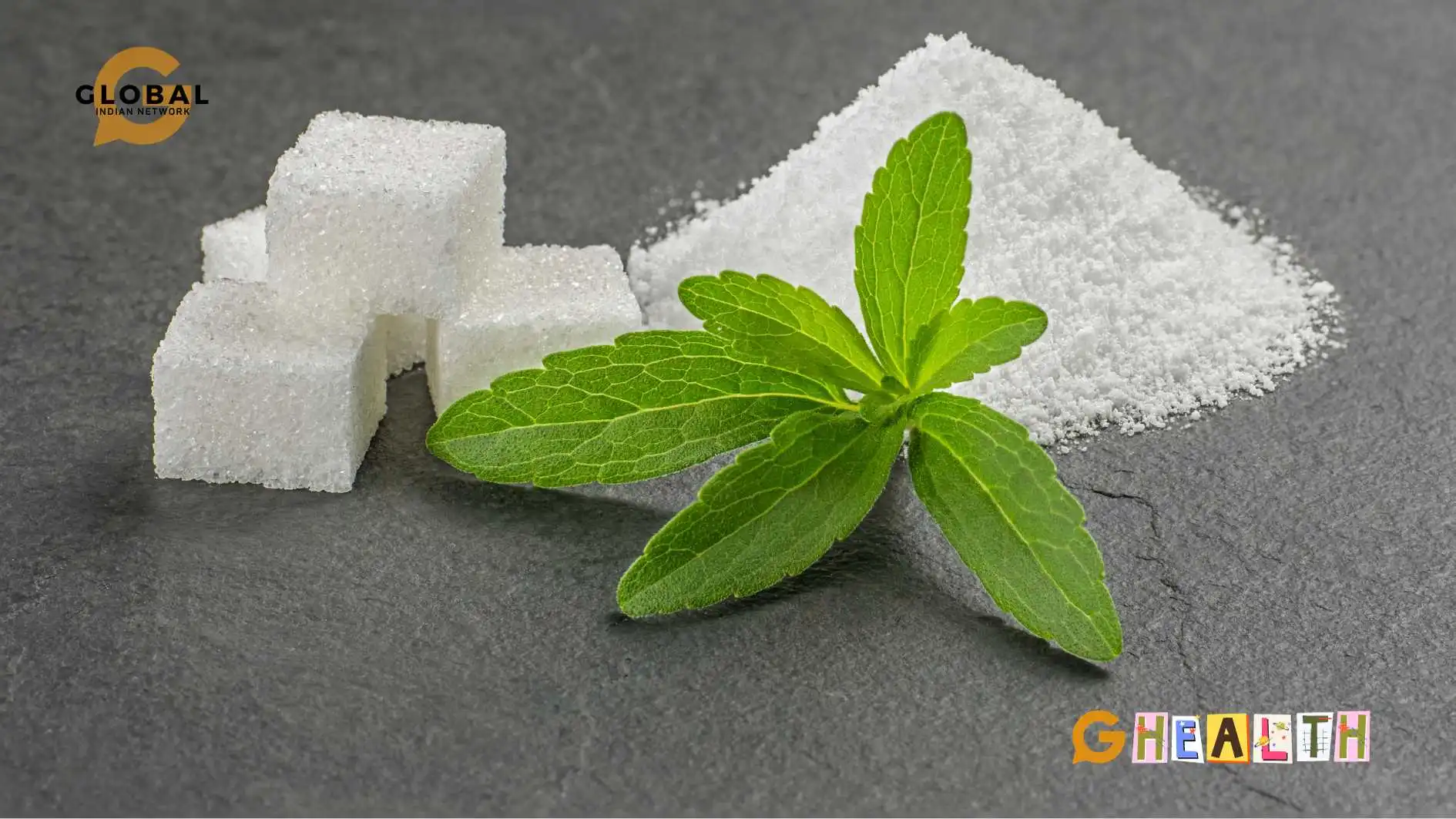Can’t get over that favourite food of yours?
But you have diabetes? No need to be upset.
Sugar alternatives in the form of sweeteners are around. The next problem is: which are they, and how do you choose the right one?
Allow us to take on the onus. Get ready to cheat your taste buds!
Table of Contents
Table sugar, or sucrose, is a common disaccharide sugar used as a sweetener. It is naturally found in various plants, primarily sugar cane and sugar beets. However, it is essential to note that while table sugar provides calories (about 4 calories per gram), it lacks essential nutrients.
Sucrose plays a widespread role in sweetening beverages such as tea and coffee, enhancing the flavour and texture of sweet foods through baking and contributing to creating a variety of food items.
Overindulgence in sugary foods and beverages can lead to detrimental chronic diseases, including dental decay, as well as an elevated susceptibility to health conditions like obesity and type 2 diabetes. Therefore, the replacement of sucrose is prudent to safeguard one’s well-being.
Diabetes Complications
Excessive consumption of regular sucrose can lead to various adverse health effects, including weight gain, increased risk of type 2 diabetes, cardiovascular diseases, dental issues, mood swings, and increased hunger. It’s essential to be mindful of sugar intake to avoid heart disease and the well-being of entire populations.
Sweeteners Solutions
The article discusses natural sweeteners like stevia, sugar alcohols, monk fruit sweeteners, dates, maple syrup, and honey. It also covers artificial sweeteners such as aspartame, saccharin, sucralose, and acesulfame potassium and their level of sweetness. Finally, the article touches on sugar substitutes like erythritol, xylitol, and maltitol and their impact on health.
Natural Sweeteners
Natural sweeteners are an excellent substitute for sugar, and there are many options to choose from.
Here are some of the most popular natural sweeteners:
Stevia Products (some are blended with other sugar molecules):
– Derived from the Stevia rebaudiana plant.
– Extremely sweet but calorie-free.
– Minimal impact on blood glucose levels.
– Used as a plant-based, calorie-free sweetener.
Sugar Alcohols:
– Lower in calories than regular sugar.
– Minimal effect on blood glucose levels.
– Found in sugar-free products.
– Excessive consumption can lead to digestive discomfort.
Monk Fruit Extract:
– Calorie-free, derived from monk fruit.
– Exceptionally sweet, 150-200 times sweeter than sugar.
– Suitable for diabetes management and calorie reduction.
– Used as a sugar substitute without adding calories.
Dates:
– Natural and nutrient-rich sweetener.
– High in fibre, potassium, magnesium, vitamin B6, and iron.
– Versatile and used in smoothies, oatmeal, and desserts.
– Provides a nutritious source of energy.
Maple Syrup:
– Contains antioxidants, zinc, and manganese.
– Commonly used as a topping and sweetener.
– Consume in moderation as part of a balanced diet.
– Opt for pure maple syrup without additives.
Honey:
– Natural syrup with a rich flavour.
– Contains antioxidants and has antibacterial properties.
– Used as a topping in yoghurt or for sweetening tea.
– Pure honey is minimally processed and offers potential health benefits.
Brown Sugar:
– Made by combining white sugar with molasses.
– Rich flavour with hints of caramel, toffee, and spice.
– Used in baking to enhance moisture and texture.
– Versatile in various recipes due to its properties.
Coconut Sugar:
– Derived from coconut palm trees.
– Caramel-like flavour, lower glycemic index.
– Suitable for blood sugar management.
– Used as a substitute for sugar but should be consumed in moderation.
These natural sweeteners offer alternatives to refined sugars and artificial sweeteners, each with unique characteristics and uses. Moderation is key in their consumption for a balanced diet.
Each natural sweetener has its unique benefits and can be used in a variety of ways in cooking and baking and for tea or coffee. Nutrition fact labels help you reduce several grams of sugar.
Artificial sweeteners
High-intensity sweeteners are significantly sweeter than sucrose but are used in very small amounts. High-intensity sweeteners are usually used by individuals seeking to reduce their sugar intake or for weight loss.
Here are some of the most common artificial sweeteners:
Aspartame: A low-calorie sweetener that is 200 times sweeter than sugar, commonly used in diet sodas, chewing gum, and dairy products. Some studies suggest that aspartame may contribute to headaches and other health issues in some people.
Saccharin: A zero-calorie sweetener that is 300–400 times sweeter than sugar. It’s commonly used in diet sodas, baked goods, and other low-calorie products. Some studies have linked saccharin to an increased risk of cancer in rats, but the evidence in humans is inconclusive. Saccharin’s bitter aftertaste is reduced by combining it with other sweeteners.
Sucralose: A zero-calorie sweetener that is 600 times sweeter than sugar, it’s commonly used in diet sodas, baked goods, and other low-calorie products. While animal studies may suggest potential concerns, they do not definitively indicate significant risks to humans.
Acesulfame-potassium: A zero-calorie sweetener that is 200 times sweeter than tabletop sugar. It’s commonly used in diet sodas, baked goods, and other low-calorie products. Some studies have suggested that it may adversely affect the thyroid gland.
While non-nutritive sweeteners can be a good option for those looking to reduce their sugar intake, they do have some potential health concerns. Some people may experience adverse side effects from consuming artificial sweeteners, including headaches, digestive issues, and poor nutrition absorption.
Nonnutritive sweeteners can lead to metabolic syndrome, which is a cluster of conditions, including obesity, high blood pressure, elevated blood sugar, and abnormal lipid profiles, that increase the risk of cardiometabolic health disease, stroke, and type 2 diabetes.
Intense sweeteners may affect insulin resistance or sensitivity, but research findings are inconclusive. The impact on insulin responses can vary based on the specific type of sweetener and individual factors. Some studies suggest that aspartame may not significantly raise insulin levels, but ingestion of artificial sweeteners has been associated with premature increases in insulin levels that can lead to decreased receptor activity.
Sugar Alternatives
There are several sources of sucrose substitutes available in the market that can be used as alternatives to traditional sugars.
Here are three popular options:
Erythritol is a sugar alcohol that has about 70% of the sweetness of sugar. It has a very low-calorie content and does not raise blood sugar levels, making it a suitable option for those on low-carb or diabetic diets. Erythritol is also tooth-friendly and does not contribute to tooth decay. The human body can make erythritol, also found naturally in certain fruits, mushrooms, and some fermented foods.
Xylitol is another sugar alcohol that has a similar sweetness to sugar. It has a lower calorie content and a minimal impact on blood sugar levels, making it suitable for people with diabetes. Xylitol also has dental benefits as it inhibits the growth of bacteria that cause tooth decay.
Maltitol is a sugar alcohol commonly used as a sugar substitute in various products. It has about 90% of the sweetness of sugar and a similar texture, making it a popular choice for baking. However, maltitol has a higher calorie content compared to erythritol and xylitol, and it can have a moderate impact on blood sugar levels.
Regarding the impact on health, these sugar substitutes are generally considered safe for consumption. However, it’s important to note that daily intake can still affect blood sugar levels to some extent and may cause digestive discomfort in certain individuals. However, consuming large amounts of erythritol, xylitol, or maltitol can cause digestive issues such as bloating and diarrhoea.
As with any food or ingredient, moderation is key to avoiding adverse effects.
Conclusion
In conclusion, several natural sources can be used as refined sugar alternatives. Each sweetener has unique benefits and can be used in cooking and baking. While these natural sweeteners are healthier alternatives to refined sugar, they should still be consumed in moderation as they are still high in calories. In any case, a healthy diet is a must to avoid health risks.
Additionally, there are various artificial sweeteners and sugar substitutes available in the market, each with its metabolic effects. It is crucial to choose the best sugar alternative based on individual preferences and health benefits. It’s always a good idea to consult with a healthcare professional or registered dietician before incorporating sugar substitutes into your diet, especially if you have any specific health concerns or conditions.
FAQs
Is sugar a food additive?
Sugar is a common food additive used to enhance or modify the properties, taste, texture, appearance, or shelf life of food products. It can be used as a sweetener, flavour enhancer, texture modifier, bulking agent, or preservative in various foods and beverages. High sugar content can be a preservative in certain jams, jellies, and syrups, helping extend their shelf life.
Can sugar alternatives help with weight management?
While sugar alternatives have no nutritional benefit, they are commonly employed to reduce calorie consumption due to their lower-calorie nature; they should not be relied upon as a sole method for body weight management. Achieving and maintaining a healthy weight involves considering a combination of dietary choices and lifestyle factors and not solely relying on white sugar substitutes. It pays to read nutrition food labels.
Can sugar alternatives be used in baking and cooking?
Yes, many sugar alternatives can be used in baking and cooking for better blood sugar control. However, they may not provide the browning properties of sugar, so adjustments may be needed for your sweet tooth.









